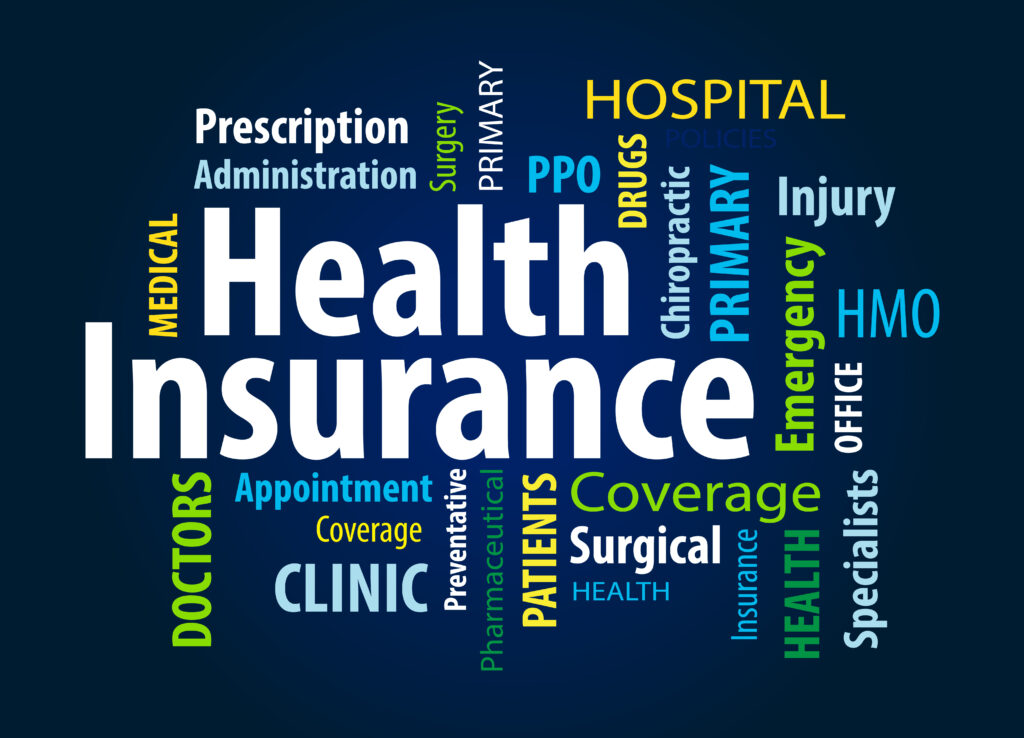Everyone deserves to have autonomy over their own health and healthcare decisions. With the advancement of technology, access to information, and a growing emphasis on patient-centered care, it has become increasingly important to give patients the choice to make their own decisions. Patients who are empowered with choice not only experience better health outcomes, but also have a more positive healthcare experience overall. In this post, we’ll discuss why choice in healthcare is so important, the benefits and risks of having a choice, and the barriers that we often face in our healthcare decision-making.
When it comes to healthcare, we are used to being told what to do, who to see, and how to solve our health problems. For years, patients have taken a backseat to their health decisions, with healthcare practitioners and providers calling the shots. However, things have been changing, and nowadays, patients are beginning to demand a say in their healthcare decisions. We now live in a landscape where we can utilize our chance for second opinions and “shop” around for the type of healthcare that we want.

Why is Choice in Healthcare Necessary?
Empowering patients to choose their healthcare is important for many reasons. Firstly, it allows patients to take control of their healthcare decisions and feel more involved in the process. When patients are involved in decision-making, they are more likely to feel satisfied with the outcome and invest more in their health. People experience better outcomes when they have a say so in making the decisions. Additionally, patient choice helps to foster trust and build stronger relationships between patients and their healthcare providers. For example, a person with diabetes working with a dietician should have some sort of food choices to consider taking into consideration their favorite foods, their ethnic food choices, and the types of food that are available to them and not just a generic food instruction list that is give to everyone.
When we allow patients to choose their healthcare providers, treatments, and services, we are acknowledging their expertise in their own health. This leads to better communication, increased trust between patients and providers, and ultimately, better outcomes. Additionally, having a choice allows patients to align their healthcare preferences with their personal values and lifestyle. This is particularly important in end-of-life care, where patients often have deeply personal beliefs and desires for their own care.
What are the Risks of not Having a Choice in Healthcare?
One of the most significant risks of not having a say in your healthcare decisions is that you may be working with a healthcare provider who isn’t the right match for you. This may mean that you don’t receive the quality of care that you need, or that you feel uncomfortable or unable to ask questions or share important information. Additionally, when patients aren’t involved in their healthcare decisions, it can lead to missed diagnoses, reduced satisfaction, and higher rates of disengagement. This is why it’s essential to ensure that patients are given a choice in their healthcare decisions, enabling them to choose their provider and the care they receive.
With our small but growing directory of healthcare professionals and services this is our mantra. “Matching the Right Healthcare Choices for the Right Reasons.” We provide welcome videos with all our professionals so you can get a firsthand look in their philosophy and practices to see if their service may be a good fit for you. We also believe your right to choose should be free of charge.
When patients don’t have a choice in their healthcare, they may end up with healthcare professionals who aren’t a good fit for them. If patients feel forced into seeing healthcare practitioners they don’t trust or don’t feel comfortable with, they may end up feeling unempowered and not willing to follow through with their healthcare plan. This can lead to distrust in healthcare providers, decreased adherence to treatments, and ultimately, worse health outcomes. This can negatively impact their overall health and wellbeing. If your goals, lifestyle, personal beliefs, values, and personal choices are not in alignment with your healthcare professional then you likely are not going to do as well in following their suggestions.
Furthermore, patients who are not given a choice may feel frustrated, disempowered and like they are being treated as a passive recipient of care rather than an active participant in their own health.

The Benefits of Having Choice
Empowering patients with choice in healthcare decisions can bring significant benefits. For one, it can lead to improved engagement and satisfaction with healthcare services. When patients feel like they have a say in their care, they are more likely to take an active role in their health, which can lead to better outcomes. Additionally, choice can help patients find the right healthcare provider match, which can result in increased trust, better communication, and a stronger alliance between patients and healthcare providers. Lastly, choice can help patients feel more confident in their healthcare decisions, which can reduce stress and anxiety.
One of the significant benefits of having a choice in healthcare is the availability of different options for patients. When patients have choices, they can select the healthcare provider that best aligns with their values and preferences. Patients can also decide on the location, timing, and type of care they receive. This approach ensures that patients are receiving the care that is tailored to their individual needs and preferences, leading to better outcomes.
Moreover, patients who choose their own healthcare services and treatments report feeling more in control of their own health, which is important for psychological well-being. In addition, patients who have a choice feel that their autonomy is respected, which can lead to a more positive healthcare experience overall.
What are the Barriers to Choosing your Healthcare Services?
Despite the many benefits associated with choice in healthcare decisions, there are still several significant barriers that patients face. One of the most significant of these is limitations on access to health insurance coverage or healthcare providers. For instance, some insurance plans may be less inclusive, making it challenging for patients to choose a provider that is the right fit for them. Additionally, geographical barriers can sometimes limit patient choice, especially for individuals living in rural areas or otherwise underserved communities. Finally, information gaps can also make it hard for patients to make informed decisions, particularly when they lack access to relevant data or information about the quality of care available in their area.
If you have a Medicare Advantage Plan or an Insurance HMO plan it is important that you make your provider choice before choosing insurance. If you like a particular doctor and that doctor is not covered under your insurance plan you may have to choose another provider that is in your insurance plan’s “network.”
Despite the benefits of having a choice in healthcare, some barriers prevent patients from accessing this right. One significant barrier is the availability of healthcare practitioners. In some cases, patients may not have a choice because there aren’t enough healthcare professionals available. Additionally, insurance restrictions and cost barriers can limit patients’ choices when it comes to healthcare services.

By JJAVA Adobe Stock Photos
If you are in the hospital or at the doctor’s office and you need a special service such as a nursing home, home care, home health care, therapy, assisted living facility or maybe home oxygen you have a choice in deciding on the company or facility that you want to use. Again, we may have the insurance barrier. (it is important to know your insurance network of companies and facilities you can use.) Some hospitals/clinics have their own home healthcare, hospice, or nursing home or other services and it is an easy transition to have you use their own, but they are mandated to give you a choice. You do not have to use theirs unless you are obligated by your insurance. A list should be provided to you to see what your choice in your community are.
Despite these benefits, there are still barriers to patient choice in healthcare. Most commonly, these barriers are related to access and cost. Patients who lack access to health insurance or affordable healthcare services may not have the option to choose their own healthcare providers or treatments. Furthermore, patients may face systemic barriers related to social determinants of health, such as race, ethnicity, or socioeconomic status, that make it difficult for them to access high-quality healthcare services.
In conclusion, empowering patients with choice in their healthcare decisions is essential to ensuring that they receive the care that best meets their health needs, values, and preferences. Patients who have a choice in healthcare decisions experience better health outcomes, greater satisfaction with their care, and a more positive healthcare experience overall. However, barriers related to access and cost still stand in the way of patient choice. As healthcare providers and policy makers continue to work towards patient-centered care, it is essential that we ensure all patients have access in choosing their healthcare decisions.
While some barriers prevent patients from accessing this right, we must continue to advocate for patient choice. As patients, we must start demanding more from our healthcare providers, asking questions, and seeking second opinions. By doing this, we can take control of our healthcare decisions and improve our overall health and wellbeing.

Overall, providing patients with the power to choose their healthcare providers is essential for creating positive outcomes and improving overall health. Although there are barriers to healthcare choice, there are also many benefits associated with enabling patients to make informed decisions about the care that they receive. For families looking to improve their healthcare outcomes, it’s essential to look for healthcare providers who support empowering patients, enabling them to make informed decisions about their health. With the right resources, support, and guidance, patients can take charge of their healthcare needs and lead a healthier, more fulfilling life.
Thanks for taking the time out of your day to stop by and check out our blog post. We hope we have brought you value and at least one nugget you can use to improve your own healthcare outcomes. Consider stopping by our Facebook Page for tips on Wellness and to learn more about our healthcare professionals. You can also view our directory of services at our Patient Advocate Match website and directory.
Take care and we will see you back here soon!
Pam Dunwald, R.N.
Patient Advocate Match.
“Matching the Right Healthcare Resources for the Right Reasons.”
Resources
Patient Advocate Match Facebook Page for Daily Resources
https://www.ncbi.nlm.nih.gov/pmc/articles/PMC5771520/


